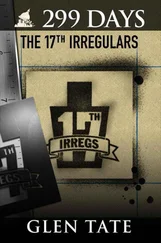After breakfast, Jeanie went to the conference room where she was working. Someone told her a briefing would start in a few minutes. She logged onto the internet. They had a reasonably stable connection. She checked the local news. She needed to know what they were reporting because her job was to get information to the local news. It said there was some isolated looting in Seattle, some gas stations out of gas, Interstate 5 jammed and people told to stay home, medically-dependent people flocking to hospitals that were overwhelmed. Lots and lots of “neighbor helping neighbor” stories. Plenty of scenes of National Guard and police helping people. Things might actually be OK.
People started coming into the conference room. Jason, the guy from the Governor’s Office who had been briefing them, opened the day.
“Good morning,” Jason said. “I hope most of you got to sleep last night. I know I sure feel better now that I have. Here’s what’s going on now. First, DC has authorized federal and state authorities—and that would include us—to seize critical infrastructure and supplies under the Insurrection Act. We need a nice word for this. Any PR people want to help me with that?”
Jeanie raised her hand and said, “Requisition? It has a military and temporary sense to it.”
“Requisition it is,” Jason said. He was impressed with Jeanie’s smarts, and she wasn’t bad looking, either.
“So,” Jason continued, “we’re requisitioning gasoline, prescription medicine, trucks, food, and other things. Stress to people that this is temporary. Everything will be given back once the Crisis—oh, yeah, that’s the term DC wants us to use, ‘Crisis’—is over. So ‘requisition,’ ‘temporary,’ and ‘Crisis’ are the words of the day.” The political people were accustomed to using key words that had been focus grouped and tested by polls, the “words of the day.” They were sometimes called “talking points.”
Jason continued, “First responders will keep records of the things they…requisition and there will be a claims process when this is over.” He paused for a moment.
“Here’s the part that people can’t know,” Jason said. “We don’t have any money to pay people back with. You guys familiar with the Olympia situation know this. So brush off the questions about ‘how will this be paid for.’ Stress the need to get medicine to people and that kind of thing. Ask them, ‘how much is a human life worth?’”
Everyone wrote down that talking point: “how much is a human life worth?”
“Second,” Jason said, “thinking a little more long-term, we are going to start up some state farms. You know all that wheat and potato farm land in Eastern Washington? We’re going to organize some farms to produce food and distribute it. The feds get some of it, but they have to transport it, which could be a problem if we had to try to solve that one on our own. We get most of it, and transporting it over to Seattle from eastern Washington will be less of a problem than transporting it to LA. We’ll work with the large agribusinesses in the state. We’ll offer employment to people to go over there and work on the farms and processing plants.”
Jason didn’t say it, but the political strategist in him loved the idea of the Governor solving a big problem like food production, getting all the credit, handing out jobs, and helping the agricultural companies that had been helping the Governor and her selected candidates with donations. It was perfect. This would be permanent. The state would be in a new and giant business—and people would be begging them to do it. Never let a good crisis go to waste, he thought.
“Here’s something that’s in the works,” Jason said. “You can describe it to reporters off the record and on background. The official announcement will be coming in a while. We’re coming up with a way for people to pay for their necessities. Let’s face it: inflation is off the charts. Some stores aren’t taking money anymore. ATMs are shut down and so are banks. People need a way to get things. We’re working on expanding the EBT cards.” Those were the “electronic benefits transfer” card, which were given to welfare recipients with their welfare money on it. They were accepted like debit cards at places that accepted regular debit cards.
“We will probably call the new cards ‘Freedom Cards,’” Jason said. “We’re already calling them ‘FCards’ for short.”
Jason put his finger up in the air to emphasize this next point. “Don’t call them ‘ration cards,’ but that’s essentially what they will be. We can pre-load them with the amount we want people to have and we can track what people are getting.” He didn’t say it, but people like him and the people in the room who were crucial to the recovery would get more—lots more—loaded onto their FCard. He also didn’t say it, but while they could theoretically track what people got, they didn’t have enough data analysts to really know what everyone was doing. They did, however, have enough analysts to track what “problem people” were getting. They would be the ones visited by the Freedom Corps for “hoarding.” He wouldn’t tell them that right now. That was a different briefing for a later day.
“The difficulty right now,” Jason said, “is that the internet is down sometimes. So electronic cards aren’t working all the time, but as we fix the internet and electricity problem, we can start to bring the FCards online. But, first things first. We need to have products in stores for people to buy with the cards so we’re working on that.”
Jeanie wondered how the cards would be paid for. She raised her hand.
“Yes, Jeanie,” Jason said. Jeanie was thrilled that he knew her name.
“I know we’re supposed to dodge the question from reporters about how we’re paying for everything,” Jeanie said, “but we should know these answers. So, how are we paying for the FCards?”
“Excellent question,” Jason said, “and I have an excellent answer.” He couldn’t help being a little flirtatious with a beautiful and smart woman like Jeanie.
“We’re ‘securitizing’—another word for the day—financial accounts,” Jason said. “That’s not news yet, so don’t mention it. But all those bank accounts, mutual funds, 401(k)s, and pensions people have? The federal government has taken them in for safekeeping; ‘securitizing’ them. They are now safe from the ups and downs of the market. So, like Social Security, the federal government will guarantee a return on them. But,” Jason grinned his widest grin, “we have to take possession of the funds.”
People in the conference room were stunned. Was this guy grinning about the federal government taking all the money everyone owned?
“So,” Jason said with that same wide grin, “all those securitized funds are what will be drawn on for FCards.”
It was brilliant and horrific, Jeanie thought. Americans had trillions of dollars just sitting in those accounts; money that was useless now that the banks were closed. And even with the out-of-control inflation, trillions of dollars was still a lot of money. It was enough to buy plenty of wheat and potatoes. People would never let the government take their bank accounts in normal times. But now, with no way to get their money out of those bank accounts, the Feds knew that people would be more than happy to use that money to eat. They had no choice.
And, Jeanie realized, now that the government had taken over all the accounts and no one had retirement money anymore, the government could start up a new system. Social Security on steroids. Even after the current Crisis was over, and food was back in the stores and people weren’t using FCards, their retirements will have been wiped out. Now people would be forever dependent—entirely dependent—on the federal government for their retirement. There goes the Republican Party, Jeanie thought. If there would even be elections any time soon.
Читать дальше











